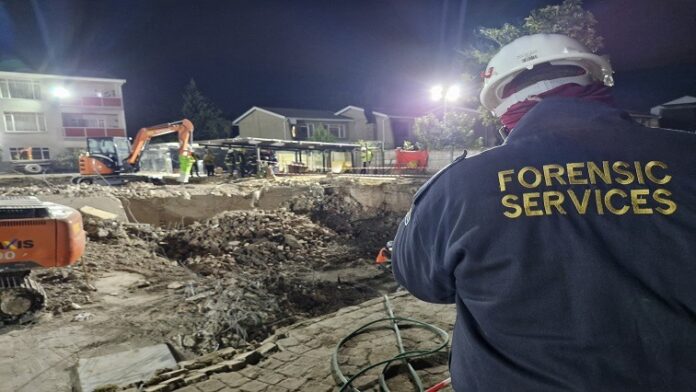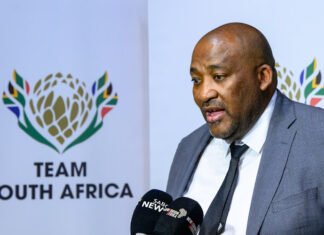The George Municipality has provided an update on the tragic building collapse that occurred last week, revealing that six of the 32 people who lost their lives have been identified.
Municipal spokesperson, Chantel Edwards, has stated that efforts are being made to expedite the identification process, as it has now been a week since the disaster.
Edwards has explained that various methods are being used to identify the deceased, including fingerprinting, DNA testing, and examining unique markings such as tattoos and clothing items.
[ George Building Collapse Death Toll Rises To 30, With 22 Still Missing ]
It is important to note that the forensic pathology services involved in this process are not limited to the Victoria Street disaster in George, but also encompass other cases that occur daily.
Confirming the identification of six of the deceased, Edwards emphasized that this information has been properly processed through the system.
However, there are still 20 workers who remain unaccounted for, and an additional 12 individuals are currently hospitalized. Edwards has urged families who have not yet come forward to assist with the identification of their loved ones to do so promptly.
In the wake of this devastating incident, Deputy Minister of International Relations (DIRCO), Alvin Botes, has made a public appeal for financial assistance to aid in the repatriation of the bodies of foreign nationals who lost their lives in the collapse.
Representatives from the High Commission of Zimbabwe and Malawi are also present in George to meet with the victims’ family members and oversee the repatriation process.
Botes has highlighted the fact that repatriation is not covered by consular support services, making it necessary for the public to step forward and provide assistance. He has called upon both individuals and private companies in South Africa to contribute towards helping the affected families.
The Deputy High Commissioner of Malawi, Panji Winston Chirwa, has echoed this sentiment and emphasized the need for the responsible companies involved in the construction of the building to also come forward and offer their support.
While a company called AVBOB has been identified to take care of the deceased, including transportation to Cape Town and embalming, there is still uncertainty regarding their commitment to repatriation.
Chirwa explained, “The problem becomes that they haven’t yet committed to repatriate the bodies.” Therefore, it is crucial for these companies to fulfill their responsibility in assisting with the repatriation process.
In light of the ongoing challenges faced in identifying the missing and deceased individuals, Edwards has urgently requested families who have lost contact with their loved ones to visit the George Civic Centre on York Street.
This will enable the authorities to gather accurate information and ensure that all necessary steps are taken to identify and provide closure to the affected families.
Catch up with the latest news from The Times Post on WhatsApp by following our channel. Click here to join.
Kindly follow @thetimespost on Instagram. On X (Twitter), follow @thetimespost2.















